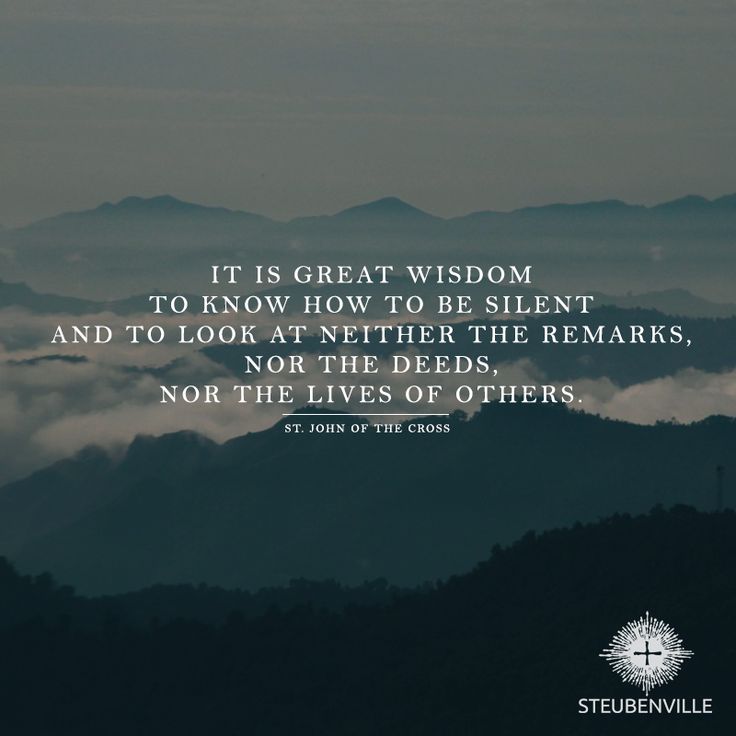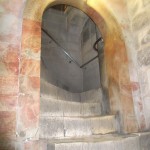Reveal your presence,
And may the vision of your beauty be my death,
For the sickness of love
Is not cured
Except by your very presence and image.…
In the inner wine cellar
I drank of my beloved, and when I went abroad
Through all this valley
I no longer knew anything,
And the lost herd that I was following.
There he gave me his breast;
There he taught me a sweet and living knowledge;
And I gave myself to him,
Keeping nothing back…Now I occupy my soul
And all my energy in his service;
I no longer tend the herd,
Nor have I any other work
Now that my every act is love.
….
Let us rejoice, beloved,
And let us go forth to behold ourselves in your beauty,
To the mountain and to the hill,
to where the pure water flows,
And further, deep into the thicket.And then we will go on
To the high caverns in the rock
Which are so well concealed;
There we shall enter
And taste the fresh juice of the pomegranates.There you will show me
What my soul has been seeking,
And then you will give me,
You, my life, will give me there
What you gave me on that other day:The breathing of the air,
The song of the sweet nightingale
The grove and its living beauty
In the serene night,
With a flame that is consuming and painless.
According to John of the Cross, all that exists, created by God, is good. Through creatures we may arrive at the discovery of the One who has left within them a trace of himself. Faith, in any case, is the one source given to the human being to know God as he is in himself, as the Triune God. All that God wished to communicate to man, he said in Jesus Christ, his Word made flesh. Jesus Christ is the only and definitive way to the Father (cf. Jn 14:6). Any created thing is nothing in comparison to God and is worth nothing outside him, consequently, to attain to the perfect love of God, every other love must be conformed in Christ to the divine love.
From this derives the insistence of St John of the Cross on the need for purification and inner self-emptying in order to be transformed into God, which is the one goal of perfection. This “purification” does not consist in the mere physical absence of things or of their use; on the contrary what makes the soul pure and free is the elimination of every disorderly dependence on things. All things should be placed in God as the centre and goal of life.
Of course, the long and difficult process of purification demands a personal effort, but the real protagonist is God: all that the human being can do is to “prepare” himself, to be open to divine action and not to set up obstacles to it. By living the theological virtues, human beings raise themselves and give value to their commitment. The growth of faith, hope and charity keeps pace with the work of purification and with the gradual union with God until they are transformed in him.
When it reaches this goal, the soul is immersed in Trinitarian life itself, so that St John affirms that it has reached the point of loving God with the same love with which he loves it, because he loves it in the Holy Spirit.
For this reason the Mystical Doctor maintains that there is no true union of love with God that does not culminate in Trinitarian union. In this supreme state the holy soul knows everything in God and no longer has to pass through creatures in order to reach him. The soul now feels bathed in divine love and rejoices in it without reserve.
Dear brothers and sisters, in the end the question is: does this Saint with his lofty mysticism, with this demanding journey towards the peak of perfection have anything to say to us, to the ordinary Christian who lives in the circumstances of our life today, or is he an example, a model for only a few elect souls who are truly able to undertake this journey of purification, of mystical ascesis?
To find the answer we must first of all bear in mind that the life of St John of the Cross did not “float on mystical clouds”; rather he had a very hard life, practical and concrete, both as a reformer of the Order, in which he came up against much opposition and from the Provincial Superior as well as in his confreres’ prison where he was exposed to unbelievable insults and physical abuse.
His life was hard yet it was precisely during the months he spent in prison that he wrote one of his most beautiful works. And so we can understand that the journey with Christ, travelling with Christ, “the Way”, is not an additional burden in our life, it is not something that would make our burden even heavier but something quite different. It is a light, a power that helps us to bear it.
If a person bears great love in himself, this love gives him wings, as it were, and he can face all life’s troubles more easily because he carries in himself this great light; this is faith: being loved by God and letting oneself be loved by God in Jesus Christ. Letting oneself be loved in this way is the light that helps us to bear our daily burden.
And holiness is not a very difficult action of ours but means exactly this “openness”: opening the windows of our soul to let in God’s light, without forgetting God because it is precisely in opening oneself to his light that one finds strength, one finds the joy of the redeemed.
Let us pray the Lord to help us discover this holiness, to let ourselves be loved by God who is our common vocation and the true redemption.











